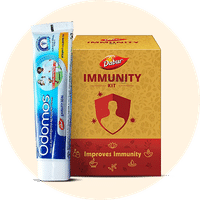B-Folcin Gel
Rs.90for 1 tube(s) (10 gm Dental Gel each)
food interaction for B-Folcin Dental Gel
alcohol interaction for B-Folcin Dental Gel
pregnancy interaction for B-Folcin Dental Gel
lactation interaction for B-Folcin Dental Gel
food
alcohol
pregnancy
lactation
No interaction found/established
No interaction found/established
Information regarding the use of B-Folcin Gel during pregnancy is not available. Please consult your doctor.
CONSULT YOUR DOCTOR
B-Folcin Gel should be used with caution during breastfeeding. Breastfeeding should be held until the treatment of the mother is completed and the drug is eliminated from her body.
CAUTION
SALT INFORMATION FOR B-Folcin 8.7% Dental Gel
Choline Salicylate(8.7%)
B-folcin dental gel uses
{med_name} is used for mouth ulcers.
How b-folcin dental gel works
B-Folcin Gel is a non-steroidal anti-inflammatory drug (NSAID) that relieves mouth sores. It works by blocking the release of certain chemical messengers (prostaglandins) which cause pain and inflammation (redness and swelling) in the mouth.
Common side effects of b-folcin dental gel
Burning sensation, Application site reactions (burning, irritation, itching and redness)
SUBSTITUTES FOR B-Folcin Dental Gel
No substitutes foundExpert advice FOR B-Folcin Dental Gel
- Choline Salicylate is prescribed for the treatment of mouth ulcers.
- Avoid putting dentures or braces back in the mouth for half an hour after applying the gel in your mouth.
- Avoid eating and drinking immediately after applying Choline Salicylate.
- Using a clean finger to massage the gel onto the sore area, not more than once every 3 hours.
- Do not smoke while using Choline Salicylate as it might cause some side effects.
- Consult your doctor if your pain does not improve after using this medication for 7-14 days, or if your symptoms get worse.
Frequently asked questions FOR B-Folcin 8.7% Dental Gel
Choline Salicylate
Q. How should I use B-Folcin Gel?
This medicine should be used only inside the mouth. Take a small amount of B-Folcin Gel over a cotton swab and apply a uniform, thin layer of B-Folcin Gel over the affected area. Avoid rubbing the area as it may irritate the ulcers.
Q. Is it OK to swallow B-Folcin Gel?
No, you should not swallow B-Folcin Gel. Just apply a thin layer of B-Folcin Gel over the affected area in the mouth with a cotton swab.
Q. How long does it take B-Folcin Gel to work?
You can see an improvement in your ulcers within 7 days. However, your doctor will decide the exact dose and duration of your treatment depending on your condition. Follow your doctor’s instructions to get the maximum benefit of B-Folcin Gel. Moreover, if you do not find a considerable improvement within the prescribed duration, consult your doctor. It is important to know if your symptoms have worsened with time then stop the medication immediately and consult your doctor.














